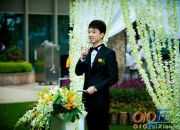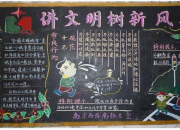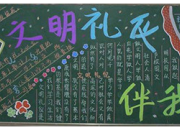介绍圣诞节的英语作文范文
时间:2021-08-31圣诞节前夕也就是俗话说的平安夜,当晚,全家人会团聚在客厅中,围绕在圣诞树旁唱圣诞歌曲,互相交换礼物,彼此分享一年来生活中的喜怒哀乐,表达内心的祝福及爱。以下是小编带来的圣诞节英语作文,希望对你有帮助。

圣诞节英语作文(一)
The word Christmas comes from the words Cristes maesse, or "Christ's Mass". Christmas is the celebration of the birth of Jesus for members of the Christian religion. Most historians peg the first celebration of Christmas to Rome in 336 AD. Christmas is both a holiday and a Holy Day. In America it is the biggest event of the year (especially for kids), and for members of the Christian religions it is an important day on the religious calendar. The federal government, all state governments, all schools/colleges/universities and the vast majority of businesses in America give employees one or two days off at Christmas, making it an important holiday (other federal holidays are: New Year's Day, Martin Luther King Day, Washington's Birthday, Memorial Day, Independence Day, Labor Day, Columbus Day, Veterans Day, Thanksgiving). In the Roman Catholic calendar, Christmas is one of 6 holy feast days celebrated in America, the others being: Circumcision (New Year's Day), Ascension, Assumption (Mary's Assumption into heaven, August 15), All Saints (November 2), and the Immaculate Conception.
圣诞节英语作文(二)
Although it is generally agreed that the Christmas tree in its current form came from Germany in the early 19th century, the tradition of decorating a tree to mark winter celebrations dates back hundreds of years to Roman times, when they used to decorate evergreen trees with small pieces of metal to celebrate Saturnalia.
In medieval times the 'Paradise Play' was performed every year on 24 December. This depicted the creation of Man and the fall of Adam and Eve from the Garden of Eden and always included an evergreen hung with apples which represented the apple tree of temptation.
There is a legend that St Boniface, an English monk, came upon a group of pagans gathered around an oak tree who were preparing to sacrifice a child to the God Thor. In order to stop the sacrifice, and save the child's life, St Boniface is said to have felled the tree with one blow of his fist. Later on, a fir tree grew in place of the oak and this, St Boniface told the pagans, was the Tree of Life and represented the Christ Child.
Legend also suggests that, in the late 16th century, Martin Luther (the founder of the Protestant religion) was the first to decorate an indoor tree with candles when he attempted to recreate the stars shining over a forest of evergreens.
The first mention of decorated trees being taken indoors came in 1605 in Germany - a country with a long Christmas tree history! The trees were initially decorated with fruit and sweets together with hand made objects such as quilled snowflakes and stars. German Christmas Markets began to sell shaped gingerbreads and wax ornaments which people bought as souvenirs of the fair and took home to hang on their tree.
Tinsel was also invented in Germany in about 1610. Up until fairly recently real silver was used, which was pulled into wafer thin strips by special machines. This was durable but tarnished quickly and many experiments took place to try and find an alternative - including a mix of lead and tin, which was too heavy and kept breaking. It was only in the mid 20th century that a viable alternative was found.
Artificial trees were invented in the 1880's in a bid to try and stop some of the damage being caused to real trees due to people lopping the tip off large trees, thus preventing the trees from growing any further. It got so bad in Germany that laws had to be brought in to prevent people having more than one tree.
Prince Albert, husband of Queen Victoria, is credited with being responsible for introducing the custom of the Christmas tree to the British public by decorating the first English Christmas tree at Windsor Castle in 1841 using candles, sweets, fruit and gingerbread.
The popularity of the Christmas tree grew in Britain during the first half of the 20th century, with trees becoming bigger and more elaborately decorated with bells, baubles and tinsel. However, the onset of the Second World War resulted in a ban on cutting down trees for decoration and people resorted to having small, artificial tabletop trees bearing home made decorations. These were often taken down into the air raid shelters when the sirens sounded to provide a bit of Christmas cheer!
This all changed following the war, and large trees were erected in many public places to celebrate Christmas. The most famous of these is the tree in Trafalgar Square, London which is an annual gift from the Norwegian government to give thanks for the help they received from Britain during the war.











